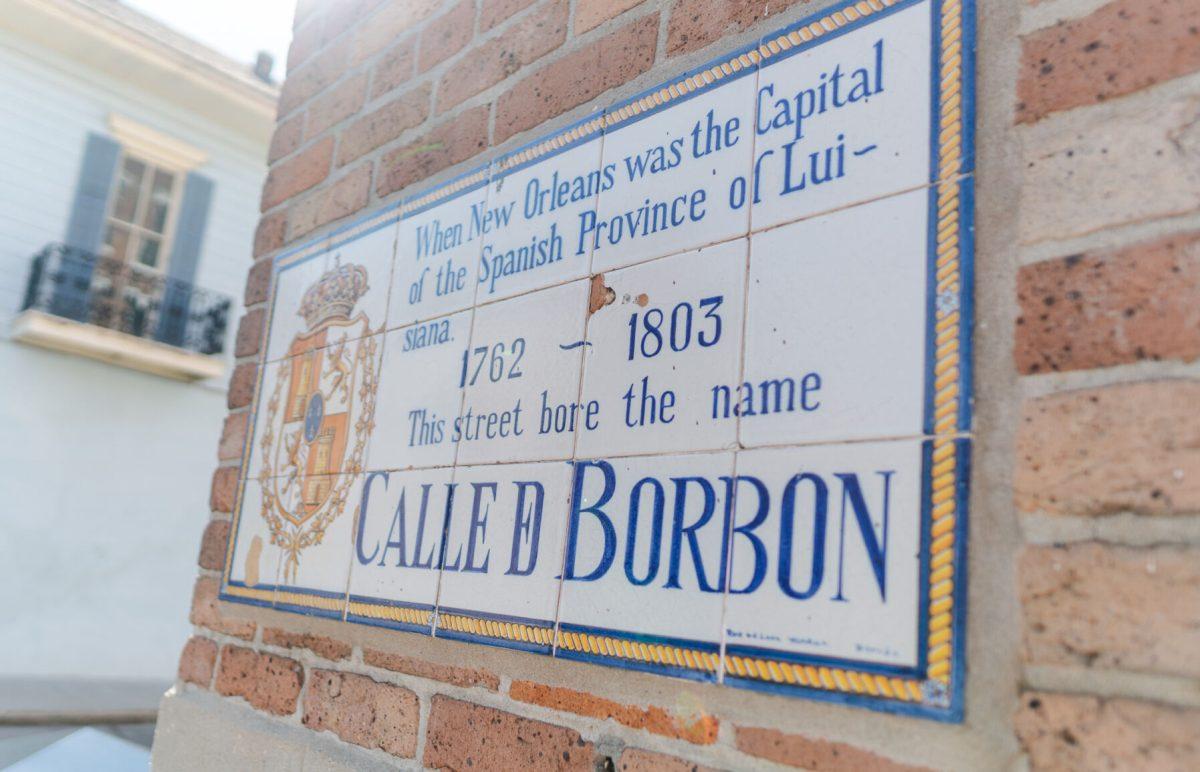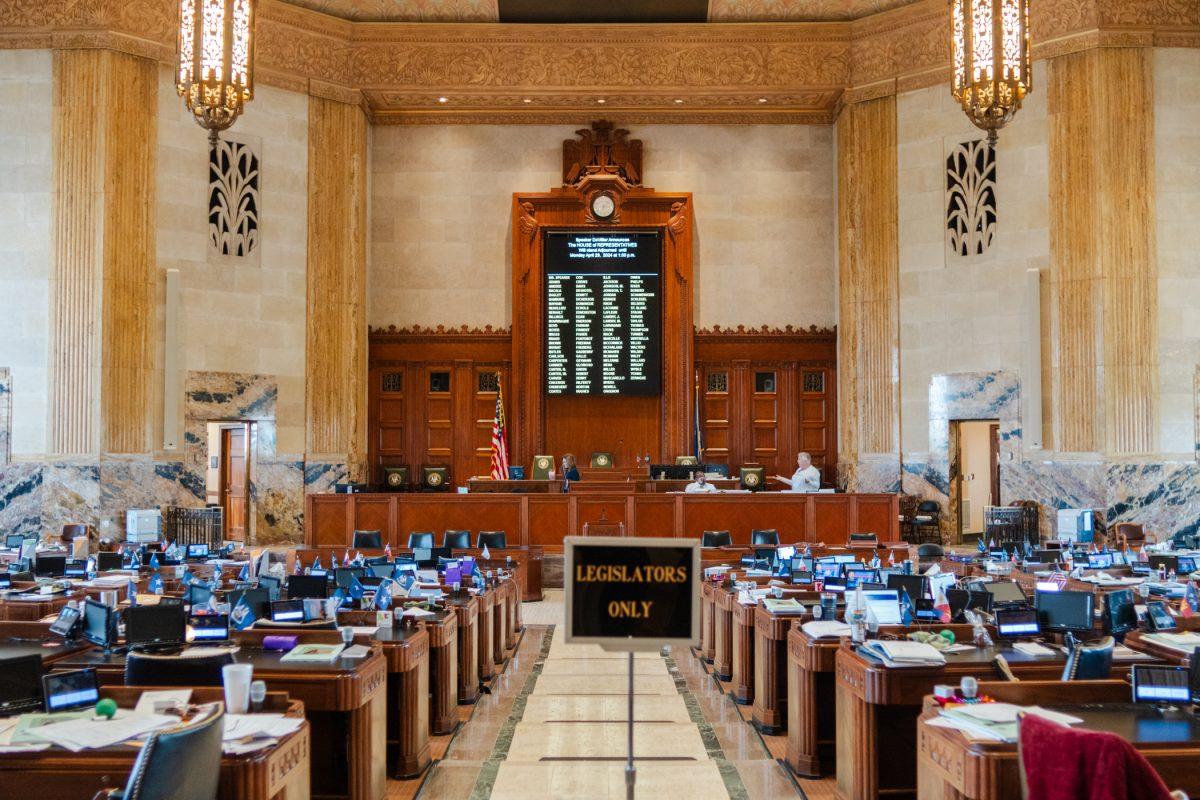In the middle of Tigerland, a family-run Palestinian shop still warmly welcomes bar-goers with the smell of fried chicken, shawarmas, gyros and colorful aisles of Turkish coffee and stuffed grape leaves.
Akasha Market owner Rania Ahmed called the shop, open since 1993, an integral part of University history. She said students party at the bars and eat at Akasha on weekends.
But after being terrorized at gunpoint and robbed of roughly $5,000 the morning of Jan. 4, Ahmed, who has run the store for more than 20 years, is leasing the business to take an indefinite leave.
“I want the people to know I left because I’m afraid,” she said. “I’m not a weak person, but I have kids to live for.”
Ahmed, who was born and raised in Gaza, came to Baton Rouge at 20 years old.
She has two college-aged children of her own who worked with her at the store, but treats all of her patrons like family. Ahmed said many of her customers greet her with hugs and call her “mama.”
“They’d keep coming to me if Walmart opened up [across the street],” she said.
Ahmed said she does not like the thought of leaving behind her student customers because she feels “it is not safe for them.” Students frequenting Tigerland are often drunk and lose their valuables to pickpockets, she said.
And from what people have told her, Ahmed said she expects the gunman to return and repeat the crime. According to a BRPD news release, Akasha Market was robbed again on Jan. 20 around 10:30 p.m.
“I do not like it, but when you fear for your life … I cannot imagine if this happened to my daughter next time,” she said.
Ahmed said the new lessee is solely business-oriented and wants nothing to do with Tigerland’s student culture or “the family,” as she puts it. She said he is nervous the store’s popularity will leave with her.
The lessee will run the store, not own it, for five years. If he does poorly, Ahmed said she will have to take her business back. She is also thinking about opening another restaurant, or similar market, somewhere near downtown Baton Rouge or the University, but definitely not in the same area as the original store.
The lessee declined to be interviewed, except to say that everything about Akasha Market will stay the same.
Recently resigned cook and cashier Abdoulaye Goita, a soft-spoken 27 year-old electrical engineering graduate student from West Africa, said things have changed since 2007 when he lived in Tigerland as a student and went to its bars, and he no longer feels safe. Goita said his friends have lived in the same Tigerland apartment for longer than he can remember, but now plan on moving to a different neighborhood.
Goita said adjusting after the robbery was hard, but “you gotta do what you gotta do.”
Jason Nay, manager at Fred’s Bar & Grill in Tigerland, said his security camera captured images of the gunman on Jan. 4 just before he entered Akasha Market, showing the barely-visible perpetrator waiting behind the dumpster in the parking lot.
Goita and Ahmed were getting ready to close for the night. Ahmed was changing a trash can liner when she looked up to find the gun pointed at her and the masked man demanding money.
Akasha Market’s security footage shows the man walking behind the store counter to steal money from the cash register and Ahmed’s bag.
The suspect told Ahmed to open her safe. She said she truthfully told him that it was empty, and she had forgotten the code.
“Either you open it, or you get killed,” she recalled him telling her.
Ahmed said she kept insisting there was no more money, begging him not to shoot because she had “four kids to live for.” Then the gunman fled with the money.
Footage shows the masked man, in all-black clothing, enter the store at approximately 1:23 a.m. and leave at approximately 1:28 a.m.
Feeling unsafe at the crime scene, Goita and Ahmed closed up and drove to Ahmed’s house in separate cars, calling the police on their way.
After deciding to start closing the store before midnight, post-robbery, Ahmed’s business immediately suffered.
Akasha Market employee Kenneth Williams said business was cut “literally in half” starting the day after the robbery, and the rising crime rate is killing the market and bar business because people have been avoiding the area.
Now, Ahmed said, people are scared to even walk around in the daytime.
She said her more expensive items, like hookahs, cannot be displayed in the front of the store because customers would steal them. Lately, she said, the store can only keep items under $1 in the front.
Nay said people have an inaccurate perception of Tigerland as “just five bars,” which creates a false perception of where exactly crime is happening.
He emphasized that the Akasha Market robbery occurred approximately an hour and a half after his bar — the only one in Tigerland open on Sunday nights — closed.
“None of these crimes are happening during hours of [bar] operation,” he said.
Whitney Ball, assistant manager of the Domino’s Pizza next to Akasha Market, said her location has taken precautions in response to crime, including keeping men on the lookout, increasing the number of workers at closing time and having all employees leave together.
Ball, who has worked at the Domino’s for two months, said she heard warnings about the crime rates when she moved to the area. She said a girl was stabbed in the empty lot next door to the Domino’s about a year ago and an apartment shooting took place in the complex behind hers.
“I don’t think it’s deterring anybody,” she said, noting the crowds of students who still flock to Tigerland every week.
She said she does not think it will affect future business, either.
Amjad Shalabi, who has been manager of Tiger Brothers Food Mart since April, said crime has been on a steady incline.
Before moving to Baton Rouge, Shalabi said he worked in the Ninth and Eighth Wards of New Orleans where there was plenty of crime. He said he thought Baton Rouge would be different.
“They told me, ‘You will be next to LSU, with students and nice places.’ But, I’m sorry … I’m not going to lie to you. The last three months, it’s gotten worse and worse,” Shalabi said.
Shalabi, whose store was a target of its own 3 a.m. break-in this past Christmas, said his employees usually catch robberies before they happen and often do not call the police because they watch every customer when they enter.
Shalabi said he sometimes carries a gun, and believes that everyone working at stores needs to carry a gun for protection.
Shalabi said he has not seen a decrease in the trend of late-night business, but he foresees a decrease in student customers because of fear.
Tigerland crime frightens, forces out business owners
By Sarah Gamard
January 27, 2016
Two-decade owner of Akasha Market is now leasing the building on indefinite leave after being victim to a recent armed robbery there on Jan. 4, 2016 in Tigerland.
More to Discover








